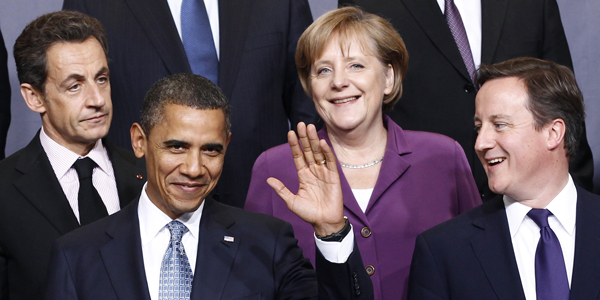
From James Joyner, the Atlantic: The blistering farewell speech to NATO by U.S. defense secretary Robert Gates warning of a "dim, if not dismal" future for the Alliance drew the Western public’s attention to a longstanding debate about the state of the transatlantic relationship. With prominent commenters voicing concern about much more than just a two-tiered defensive alliance, questioning whether the U.S.-Europe relationship itself is past its prime, doubts that the Western alliance that has dominated the post-Cold War world are reaching a new high.
But those fears are overblown, and may be mistaking short-term bumps in the relationship for proof of a long-term decline that isn’t there. Gates’ frustration with the fact that only five of the 28 NATO allies are living up to their commitment to devote 2 percent of GDP to defense, which has hindered their ability to take on even the likes of Muammar Qaddafi’s puny force without American assistance is certainly legitimate and worrying.
Though the U.S.-Europe partnership may not be living up to its potential, it is not worthless, and that relationship continues to be one of the strongest and most important in the world. Gates is an Atlanticist whose speech was, as he put it, "in the spirit of solidarity and friendship, with the understanding that true friends occasionally must speak bluntly with one another for the sake of those greater interests and values that bind us together." He wants the Europeans, Germany in particular, to understand what a tragedy it would be if NATO were to go away. . . .
The transatlantic military alliance that formed to defeat fascism remained intact after victory; indeed, it expanded to include its former German and Italian adversaries. NATO outlasted the demise of its raison d’être, the Soviet threat, and went on to fight together –along with many of its former adversaries — in Bosnia, Kosovo, Afghanistan, and Libya. Is there seriously any doubt that other challenges will emerge in the future in which the Americans and its European allies might benefit from working together?
James Joyner is managing editor of the Atlantic Council and writes at outsidethebeltway.com. (photo: Reuters)
Image: reuters%206%2014%2011%20Sarkozy%20Obama%20Merkel%20Cameron.jpg
